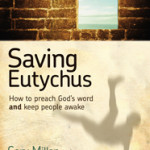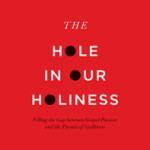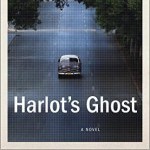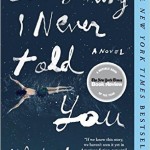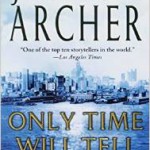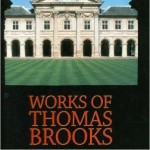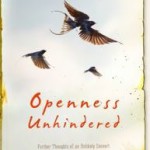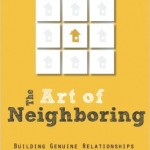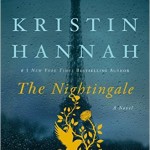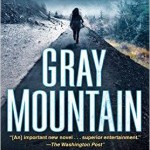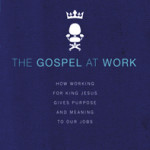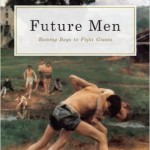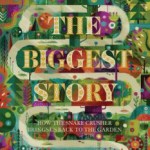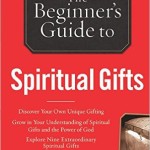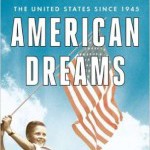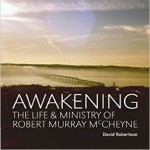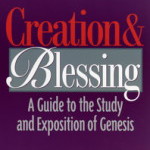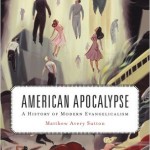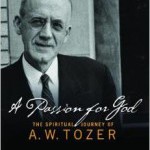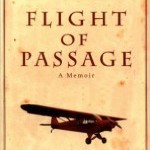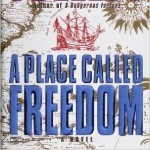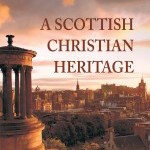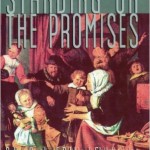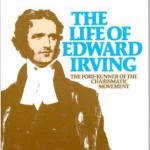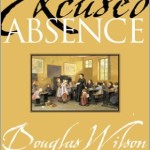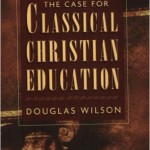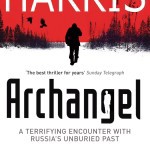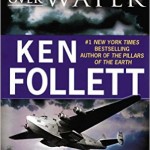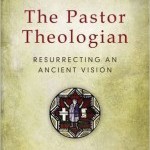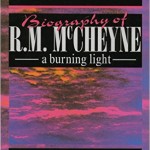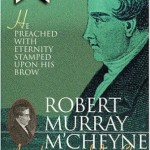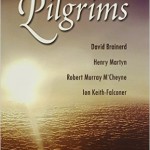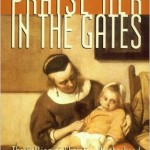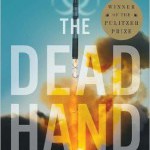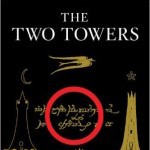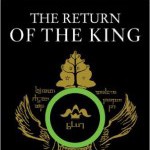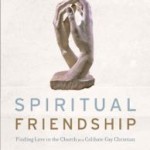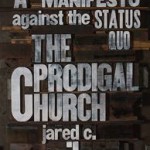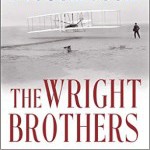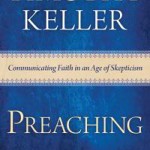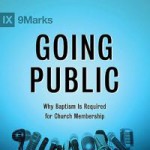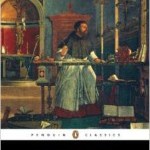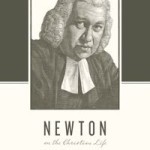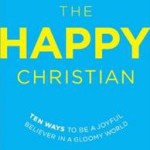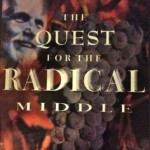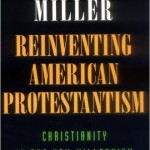I love to read. I find it helpful to summarize my thoughts on each book and I offer those thoughts in the hope that you will be encouraged to either read or pass over the given title.
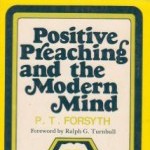 Positive Preaching and the Modern Mind by P.T. Forsyth. A few months ago I noticed a trend in several of the preaching books I’d read: some of the best parts of each book were nothing more than quotations from Forsyth’s Positive Preaching and the Modern Mind. “Ad fontes!” I cried and so here we are. Forsyth’s opus on preaching was originally delivered as part of the Lyman Beecher Lectures on Preaching at Yale University in 1907. The Scottish theologian barrels out of the gate saying, “It is, perhaps, an overbold beginning, but I will venture to say that with its preaching Christianity stands or falls” (3). “You sir,” I say, “are worth listening to.” Forsyth wanders around more than I’d prefer, but he often finds himself in a place of brilliance. His thoughts on preaching and “Religious Reality” are particularly smashing. This isn’t a fast read, but you’re preaching will be helped.
Positive Preaching and the Modern Mind by P.T. Forsyth. A few months ago I noticed a trend in several of the preaching books I’d read: some of the best parts of each book were nothing more than quotations from Forsyth’s Positive Preaching and the Modern Mind. “Ad fontes!” I cried and so here we are. Forsyth’s opus on preaching was originally delivered as part of the Lyman Beecher Lectures on Preaching at Yale University in 1907. The Scottish theologian barrels out of the gate saying, “It is, perhaps, an overbold beginning, but I will venture to say that with its preaching Christianity stands or falls” (3). “You sir,” I say, “are worth listening to.” Forsyth wanders around more than I’d prefer, but he often finds himself in a place of brilliance. His thoughts on preaching and “Religious Reality” are particularly smashing. This isn’t a fast read, but you’re preaching will be helped.
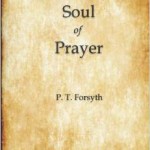 The Soul of Prayer by P.T. Forsyth. I liked Positive Preaching enough to pick up Forsyth’s much shorter (95 pages) work on prayer. The book is straightforward enough as it consider seven attributes of prayer: Prayer’s inwardness, naturalness, moral reactions, timeliness, ceaselessness, vicariousness, and insistency. He rambles about again without a cohesive center, but—like Positive Preaching—the rambling proves to offer continual spiritual profit. I found myself freshly challenged to prayer through an old man illuminating old truths in fresh ways.
The Soul of Prayer by P.T. Forsyth. I liked Positive Preaching enough to pick up Forsyth’s much shorter (95 pages) work on prayer. The book is straightforward enough as it consider seven attributes of prayer: Prayer’s inwardness, naturalness, moral reactions, timeliness, ceaselessness, vicariousness, and insistency. He rambles about again without a cohesive center, but—like Positive Preaching—the rambling proves to offer continual spiritual profit. I found myself freshly challenged to prayer through an old man illuminating old truths in fresh ways.
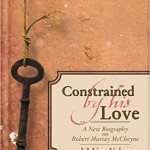 Constrained by His Love: A New Biography of Robert Murray M’Cheyne by J.L. Van Valen. Originally published in Dutch in 1992, Christian Focus translated Van Valen’s work and made it the most recent major English-language bio of M’Cheyne in 2002. The work reads less like a chronological narrative and more like a systematic treatment of M’Cheyne’s thought/practice. Once I got around that—and what seemed to be some literary verve lost in translation—I found my soul edified. Frankly, it seems impossible to me for anyone to write anything about M’Cheyne and not edify the reader. The Scotsman is just that compelling. Pictures of M’Cheyne’s cultural context, personal letters, and major figures help illuminate the story at every turn. Van Valen’s final chapter of summary thoughts on the man’s life and legacy is worth the price of the book.
Constrained by His Love: A New Biography of Robert Murray M’Cheyne by J.L. Van Valen. Originally published in Dutch in 1992, Christian Focus translated Van Valen’s work and made it the most recent major English-language bio of M’Cheyne in 2002. The work reads less like a chronological narrative and more like a systematic treatment of M’Cheyne’s thought/practice. Once I got around that—and what seemed to be some literary verve lost in translation—I found my soul edified. Frankly, it seems impossible to me for anyone to write anything about M’Cheyne and not edify the reader. The Scotsman is just that compelling. Pictures of M’Cheyne’s cultural context, personal letters, and major figures help illuminate the story at every turn. Van Valen’s final chapter of summary thoughts on the man’s life and legacy is worth the price of the book.
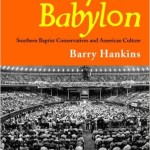 Uneasy in Babylon: Southern Baptist Conservatives and American Culture by Barry Hankins. I picked up Hankins book as something of a personal treat after completing my spring seminars at The Institution back in early June. Hankins book attempts to answer the question, “How did the conservative leaders of America’s largest Protestant denomination come to hold culture views that put them at odds with the moderates who had preceded them in the leadership positions of their denomination?” His short answer is, “Conservative leaders came to believe that America, including the South, was in the throes of a cultural crisis that necessitated a warlike struggle against the forces that were hostile to evangelical faith.” Sounds fun, doesn’t it? I thought so. As a conservative Southern Baptist I predictably disagree with some of Hankins’ more moderate conclusions, but on the whole this is some mighty fine denominational history.
Uneasy in Babylon: Southern Baptist Conservatives and American Culture by Barry Hankins. I picked up Hankins book as something of a personal treat after completing my spring seminars at The Institution back in early June. Hankins book attempts to answer the question, “How did the conservative leaders of America’s largest Protestant denomination come to hold culture views that put them at odds with the moderates who had preceded them in the leadership positions of their denomination?” His short answer is, “Conservative leaders came to believe that America, including the South, was in the throes of a cultural crisis that necessitated a warlike struggle against the forces that were hostile to evangelical faith.” Sounds fun, doesn’t it? I thought so. As a conservative Southern Baptist I predictably disagree with some of Hankins’ more moderate conclusions, but on the whole this is some mighty fine denominational history.
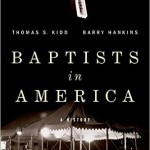 Baptists in America: A History by Thomas Kidd and Barry Hankins. The month of Baptist history continued with Hankins joining forces with the redoubtable Tommy Kidd. They ably tell the fascinating story of Baptists rise from persecuted minority to the Protestant majority in our country. Their research is impeccable and immense, best seen in the very personal vignettes woven into each chapter regarding forgotten individuals. I did, however, find this literary approach giving the story some narrative slack. But these brothers can be forgiven. The chapters on “Slavery, Schism, and War” and “Black Baptist in Babylon” were particularly insightful. At the end of the book the authors write, “In all of this, Baptists are notorious for two things—evangelism and schism.” Sounds about right to me. Well done!
Baptists in America: A History by Thomas Kidd and Barry Hankins. The month of Baptist history continued with Hankins joining forces with the redoubtable Tommy Kidd. They ably tell the fascinating story of Baptists rise from persecuted minority to the Protestant majority in our country. Their research is impeccable and immense, best seen in the very personal vignettes woven into each chapter regarding forgotten individuals. I did, however, find this literary approach giving the story some narrative slack. But these brothers can be forgiven. The chapters on “Slavery, Schism, and War” and “Black Baptist in Babylon” were particularly insightful. At the end of the book the authors write, “In all of this, Baptists are notorious for two things—evangelism and schism.” Sounds about right to me. Well done!
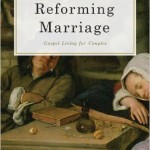 Reforming Marriage by Doug Wilson. I know some think of Wilson as the dark lord of Reformed theology, particularly all you “TR” (Truly Reformed ©) brothers. But I love him. Not that I agree with everything he says, far from it. But, Wilson always makes you think and he writes with skill that’s, as the kids say, “stupid good.” I’ve long considered his Future Men as my manual for raising boys, so I decided to dip into the rest of the Family Series catalog. First up was his little treatise on marriage. And let me say what many don’t want to say, this is brilliant. I thought his chapter one honoring the marriage bed is as good as anything I’ve yet read on the topic. This is biblical conviction worth listening to.
Reforming Marriage by Doug Wilson. I know some think of Wilson as the dark lord of Reformed theology, particularly all you “TR” (Truly Reformed ©) brothers. But I love him. Not that I agree with everything he says, far from it. But, Wilson always makes you think and he writes with skill that’s, as the kids say, “stupid good.” I’ve long considered his Future Men as my manual for raising boys, so I decided to dip into the rest of the Family Series catalog. First up was his little treatise on marriage. And let me say what many don’t want to say, this is brilliant. I thought his chapter one honoring the marriage bed is as good as anything I’ve yet read on the topic. This is biblical conviction worth listening to.
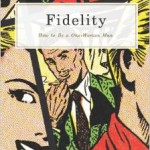 Fidelity: How to Be a One-Woman Man by Doug Wilson. Wilson ups the ante in Fidelity by saying, “Some of what is said here may be offensive to some Christian women, but the point is certainly not to give offense. The point is to provide biblically specific and pointed help for Christian males” (13). “Help on what?” you might ask. The answer is, of course, being a one-woman man grounded in God’s word (1 Tim. 3:2). So, while the book is certainly not for all people, it does have many helpful things to say about “the various allurements which distract Christian men from their sexual responsibilities.” While I didn’t find every chapter useful, his work on “Lust and Pornography” and their incumbent perils is oh so helpful.
Fidelity: How to Be a One-Woman Man by Doug Wilson. Wilson ups the ante in Fidelity by saying, “Some of what is said here may be offensive to some Christian women, but the point is certainly not to give offense. The point is to provide biblically specific and pointed help for Christian males” (13). “Help on what?” you might ask. The answer is, of course, being a one-woman man grounded in God’s word (1 Tim. 3:2). So, while the book is certainly not for all people, it does have many helpful things to say about “the various allurements which distract Christian men from their sexual responsibilities.” While I didn’t find every chapter useful, his work on “Lust and Pornography” and their incumbent perils is oh so helpful.
 How to Exasperate Your Wife and Other Short Essays for Men by Doug Wilson. The cover and title are quite hilarious, but they belie a serious little book. After Reforming Marriage and Fidelity I wondered if Wilson’s latest was going to be something of a “Doug’s Best Hits on Husbandry” album. So I was pleasantly surprised to find him treading on familiar ground in a fresh way. Every chapter is short, packed with pithy little punches and delightful spiritual digs at much of the masculine bufoonery plaguing Christian men today. I’ve already invited a few men to read the book with me as I think it will be quite edifying for all as we desire to represent Christ in our homes.
How to Exasperate Your Wife and Other Short Essays for Men by Doug Wilson. The cover and title are quite hilarious, but they belie a serious little book. After Reforming Marriage and Fidelity I wondered if Wilson’s latest was going to be something of a “Doug’s Best Hits on Husbandry” album. So I was pleasantly surprised to find him treading on familiar ground in a fresh way. Every chapter is short, packed with pithy little punches and delightful spiritual digs at much of the masculine bufoonery plaguing Christian men today. I’ve already invited a few men to read the book with me as I think it will be quite edifying for all as we desire to represent Christ in our homes.
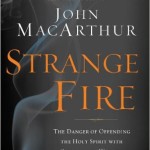 Strange Fire: The Danger of Offending the Holy Spirit with Counterfeit Worship by John Macarthur. Every Tuesday morning at 7:30am I meet with the other two staff members of IDC and we’re always working through a book. I can’t remember how it came up, but one of them suggested we read Macarthur’s Strange Fire. And read we did. And that particular staff member still isn’t sure if his decision was a good one. He thought Macarthur’s arguments were compelling biblically, but failed the “winsomeness test.” I’m not sure if I agree with the latter issue, but I can see how Macarthur’s utter confidence in his interpretation of God’s word can come across as arrogance to some. I still believe anyone looking for a popular, evangelical case for cessationism would do well to read and wrestle with this book.
Strange Fire: The Danger of Offending the Holy Spirit with Counterfeit Worship by John Macarthur. Every Tuesday morning at 7:30am I meet with the other two staff members of IDC and we’re always working through a book. I can’t remember how it came up, but one of them suggested we read Macarthur’s Strange Fire. And read we did. And that particular staff member still isn’t sure if his decision was a good one. He thought Macarthur’s arguments were compelling biblically, but failed the “winsomeness test.” I’m not sure if I agree with the latter issue, but I can see how Macarthur’s utter confidence in his interpretation of God’s word can come across as arrogance to some. I still believe anyone looking for a popular, evangelical case for cessationism would do well to read and wrestle with this book.
 The Hobbit by J.R.R. Tolkien. One day while running—any good thought I have usually comes while on a run—I decided I’d been away from Middle Earth for far too long. I soon realized it’s because I last ventured into the original, literary world of Tolkien about thirteen years (!) ago. That’s terribly long for a Hobbit loving soul like mine. So back to the world of hobbits, dwarves, elves, wizards, rings, and bad guys I went. I’d forgotten how much singing there was in middle earth and actually managed to lose a few characters over the years (Beorn being the most notable). After the book finished you know what first popped into my mind? “My, my how Peter Jackson bungled the whole Hobbit franchise.”
The Hobbit by J.R.R. Tolkien. One day while running—any good thought I have usually comes while on a run—I decided I’d been away from Middle Earth for far too long. I soon realized it’s because I last ventured into the original, literary world of Tolkien about thirteen years (!) ago. That’s terribly long for a Hobbit loving soul like mine. So back to the world of hobbits, dwarves, elves, wizards, rings, and bad guys I went. I’d forgotten how much singing there was in middle earth and actually managed to lose a few characters over the years (Beorn being the most notable). After the book finished you know what first popped into my mind? “My, my how Peter Jackson bungled the whole Hobbit franchise.”
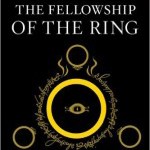 The Fellowship of the Ring by J.R.R Tolkien. Peter Jackson’s version of The Hobbit again managed to weave it’s way into my mind as I read the next book in the series. I was surprised to find how many little asides—Radagast anyone?—in the cinematic Hobbit actually came from The Fellowship of the Ring book. The Fellowship’s glory and beauty remain unstained, I am pleased to report. Tolkien’s longer introduction to the history of hobbits in this volume caused me to realize something for the first time: my natural disposition is strikingly hobbit-like. Let those who know me best and love “the trilogy to rule all trilogies” understand.
The Fellowship of the Ring by J.R.R Tolkien. Peter Jackson’s version of The Hobbit again managed to weave it’s way into my mind as I read the next book in the series. I was surprised to find how many little asides—Radagast anyone?—in the cinematic Hobbit actually came from The Fellowship of the Ring book. The Fellowship’s glory and beauty remain unstained, I am pleased to report. Tolkien’s longer introduction to the history of hobbits in this volume caused me to realize something for the first time: my natural disposition is strikingly hobbit-like. Let those who know me best and love “the trilogy to rule all trilogies” understand.
Click here to find other entries in the Recent Reads series.
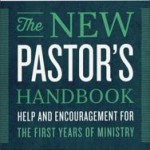 The New Pastor’s Handbook: Help and Encouragement for the First Years of Ministry by Jason Helopoulos. Believe the hype, Helopoulos’ book is indeed a “must read” for young pastors (seasoned pastors will surely benefit as well). As was the case in his first book, the instruction here is full of grace and truth. The New Pastor’s Handbook consists of forty-eight short chapters broken into five parts: The Beginning, Starting Out Strong, Encouragements, Pitfalls of Young Pastors, and Joys of Ministry. If any part is required reading it is the section on pastoral pitfalls; the one-two punch of “Taking Yourself Too Seriously” and “Not Taking Yourself Seriously Enough” hits home hard. Joe Thorn overstates his case by saying TNPH “will prove to be as helpful as The Christian Ministry by Charles Bridges.” But he doesn’t overstate the case by much, this book is really that good. Tolle lege!
The New Pastor’s Handbook: Help and Encouragement for the First Years of Ministry by Jason Helopoulos. Believe the hype, Helopoulos’ book is indeed a “must read” for young pastors (seasoned pastors will surely benefit as well). As was the case in his first book, the instruction here is full of grace and truth. The New Pastor’s Handbook consists of forty-eight short chapters broken into five parts: The Beginning, Starting Out Strong, Encouragements, Pitfalls of Young Pastors, and Joys of Ministry. If any part is required reading it is the section on pastoral pitfalls; the one-two punch of “Taking Yourself Too Seriously” and “Not Taking Yourself Seriously Enough” hits home hard. Joe Thorn overstates his case by saying TNPH “will prove to be as helpful as The Christian Ministry by Charles Bridges.” But he doesn’t overstate the case by much, this book is really that good. Tolle lege!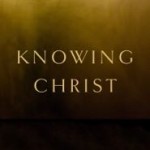 Knowing Christ by Mark Jones. If Helopoulos’s book is a modern version of Bridges’ The Christian Ministry then Mark Jones’ latest is a modern-day The Glory of Christ by John Owen. Knowing Christ is devotional Christology par excellence. Those familiar with Jones will know he is a faithful guide on the Christological paths; he employs the full range biblical theology, systematic theology, and historical theology (especially the Puritans) to make the heart happy in Christ. This is not a book to read quickly, I’d recommend reading one chapter during each day’s daily devotions. I was regularly so moved at the glories of Christ that I had to put the book down to contemplate, pray, and worship. May this book receive the widest audience possible.
Knowing Christ by Mark Jones. If Helopoulos’s book is a modern version of Bridges’ The Christian Ministry then Mark Jones’ latest is a modern-day The Glory of Christ by John Owen. Knowing Christ is devotional Christology par excellence. Those familiar with Jones will know he is a faithful guide on the Christological paths; he employs the full range biblical theology, systematic theology, and historical theology (especially the Puritans) to make the heart happy in Christ. This is not a book to read quickly, I’d recommend reading one chapter during each day’s daily devotions. I was regularly so moved at the glories of Christ that I had to put the book down to contemplate, pray, and worship. May this book receive the widest audience possible.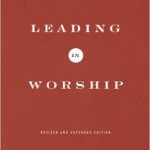 Leading in Worship by Terry Johnson. I believe every pastor should have a nice little stack of liturgy books always within reach. We need to see how pastors of old led their congregations in worship. Old liturgies challenge contemporary notions of what should happen in gathered worship and help us consider what it means to worship with “aweful reverence.” Terry Johnson has labored long to see a resurgence of historic, Reformed worship in our day and I trust Leading is Worship will further the liturgical reformation. Here is an accessible, yet substantial directory of worship worthy of the liturgy shelf in your study. Well done!
Leading in Worship by Terry Johnson. I believe every pastor should have a nice little stack of liturgy books always within reach. We need to see how pastors of old led their congregations in worship. Old liturgies challenge contemporary notions of what should happen in gathered worship and help us consider what it means to worship with “aweful reverence.” Terry Johnson has labored long to see a resurgence of historic, Reformed worship in our day and I trust Leading is Worship will further the liturgical reformation. Here is an accessible, yet substantial directory of worship worthy of the liturgy shelf in your study. Well done!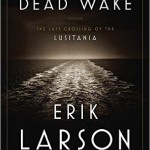 Dead Wake: The Last Crossing of the Lusitania by Erik Larson. There isn’t anyone from whom I’d rather learn history than good Mr. Larson. With every published work he proves himself o’er and o’er to be a master of narrative history—and Dead Wake won’t slow down the accolades. Count me among the many Americans who know the Lusitania’s sinking played a role in bring America into World War I, but the exact nature of that role is beyond me. Or, was beyond me until Dead Wake informed my ignorance. With envious ease Larson weaves together the story of the Lusitania (the fastest liner of the day), Walther Schieger and Germany’s U-boat project, alongside Woodrow Wilson’s romance with Edith Galt. Historical insight bleed through virtually every page and prove that the best history is nothing less than good ‘ol storytelling.
Dead Wake: The Last Crossing of the Lusitania by Erik Larson. There isn’t anyone from whom I’d rather learn history than good Mr. Larson. With every published work he proves himself o’er and o’er to be a master of narrative history—and Dead Wake won’t slow down the accolades. Count me among the many Americans who know the Lusitania’s sinking played a role in bring America into World War I, but the exact nature of that role is beyond me. Or, was beyond me until Dead Wake informed my ignorance. With envious ease Larson weaves together the story of the Lusitania (the fastest liner of the day), Walther Schieger and Germany’s U-boat project, alongside Woodrow Wilson’s romance with Edith Galt. Historical insight bleed through virtually every page and prove that the best history is nothing less than good ‘ol storytelling.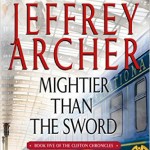 Mightier Than the Sword by Jeffrey Archer. With the completion of Mightier Than the Sword my recent jaunt through the Clifton Chronicles is complete. And I must say, this series offers hearty and healthy entertainment for bedtime reading. Archer steers clear from the lasciviousness saturating most bestsellers and instead relies on proven tricks of the trade: character development, reasonable plot lines (although I must admit the Clifton enemies seem often to rise from the ashes like phoenixes with a heartache), clear prose, and compelling tension. As is his modus operandi, Archer satisfyingly ties up several loose ends at the book’s conclusion, but leave one major storyline dangling out for book six to address. To which I say, “Come on book six!”
Mightier Than the Sword by Jeffrey Archer. With the completion of Mightier Than the Sword my recent jaunt through the Clifton Chronicles is complete. And I must say, this series offers hearty and healthy entertainment for bedtime reading. Archer steers clear from the lasciviousness saturating most bestsellers and instead relies on proven tricks of the trade: character development, reasonable plot lines (although I must admit the Clifton enemies seem often to rise from the ashes like phoenixes with a heartache), clear prose, and compelling tension. As is his modus operandi, Archer satisfyingly ties up several loose ends at the book’s conclusion, but leave one major storyline dangling out for book six to address. To which I say, “Come on book six!”
